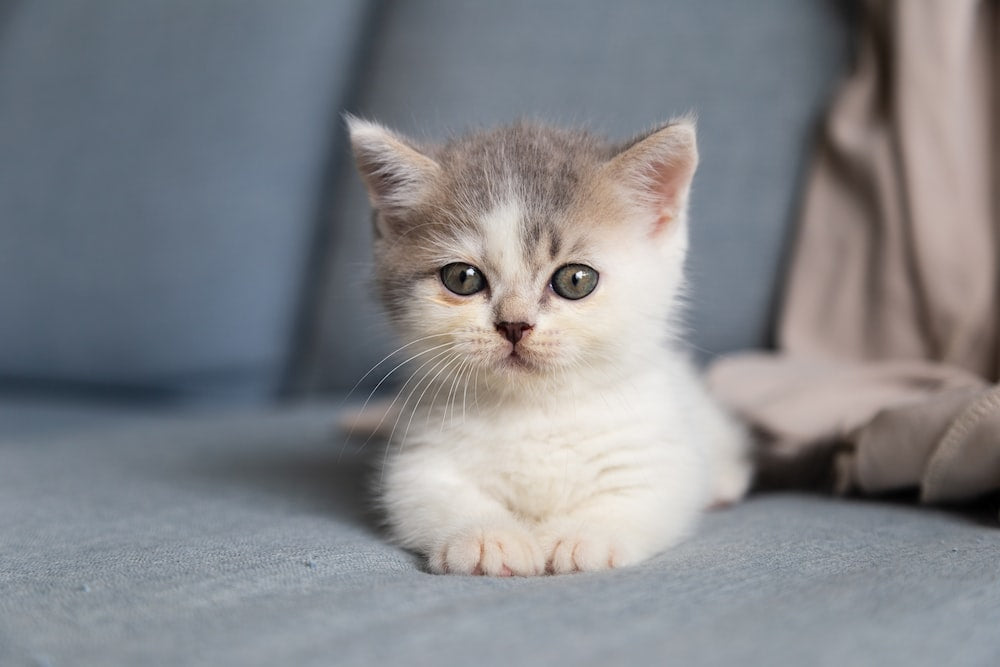In 24 cities

Can Kittens Eat Adult Cat Food? A Complete Guide
|
|
Time to read 4 min
Get product availability and delivery timelines based on your location.
Are you sure you want to delete this address?
Help us ensure a smooth delivery
Help us ensure a smooth delivery
SIZE GUIDE
|
|
Time to read 4 min
The early years of a cat's life are very critical for its nutrition and growth. Like young children, kittens have different dietary requirements than adult cats. Kittens require substantial kitten food to support their growth as well as fuel to keep up with their never-ending play sessions if they are to remain healthy. It might be challenging to choose which cat food is the healthiest because there are so many options available, from cat wet food to cat dry food.
We are here to provide you with an in-depth guide to keeping your kitten healthy and playful. Follow our guide and learn about the proper eating habits for your adorable kitten, this is valuable information that every cat parent must know. We will also focus on answering a crucial question that confuses every feline lover: whether kittens can be fed with adult cat food or not? To answer this we shall explore the overall dietary habit of kittens so you best understand why this is such an important topic.
Cats are carnivorous mammals, they must consume food that contains taurine since they are unable to produce it on their own. This biological need is satisfied in the wild by the meat of their prey; for household cats, such a requirement is fulfilled through proper nutrition-rich cat food.
At every stage of growth and development, cats need taurine. A kitten lacking taurine may also experience problems with its heart and eyesight. Taurine with enough protein and precisely the right amount of fat are essential components of a kitten's diet. Keeping these factors in mind, selecting the right kitten food for your adorable kitten becomes crucial.
It is one thing to keep stuffing your kitten’s baby-sized stomach with food, thinking that this will make them grow faster; what is critical is the quality of the diet. Rather than being overly generous with the quantity, try to focus on the quality of the meal. Kittens need to consume a proper diet that is age-appropriate.
Complete refers to the presence of all vitamins, minerals, and other nutrients required to suit the demands of the kitten. Prepare a comprehensive kitten diet because meals made for kittens must be prepared with growth in mind. To receive the finest advice, we would always suggest taking your new kitten to the veterinarian.
As with any animal, a pet's nutritional requirements change as it ages, so pet parents must be careful not to over, or underfeed their kittens. Very young kittens can be fed three to four times a day since they have large development demands but limited stomachs.
Here's a simple schedule to help you maintain a feeding schedule for your kitten:
Week 1 to 3 - Best stick to the mother’s milk
Week 4 to 5 – You can feed wet kitten food together with mother’s milk
Week 6 – Feed your kitten wet kitten food or perhaps you can try dry kitten food (mixed with water)
Week 7 to 8 – Explore feeding dry kitten food, which can be without water.
For the most nutritious and healthiest diet plans for your kitten, it is highly advisable to consult with an expert to get the most effective diet plan for your kitten.
Let us now focus on the crux of the article: should you feed adult cat food to your delicate kitten? Who doesn't want their precious, fragile kitten to grow into a formidable adult - skilled enough to fend for itself against other cats in the neighborhood? Now, this is just the type of mindset that drives the feline parents to rush their kittens into consuming adult cat food. Despite a kitten's growth, hunger and activity, experts advise against prematurely feeding your kitten with cat food, doing this they miss out on essential nutrients required for optimal growth.
It is not advisable to feed kittens adult food until the kitten is more mature, and even then, gradually transition the cat over. Kittens in particular require energy, vitamins, and minerals for their developing bodies which have to be supplied through a healthy kitten diet. Their expansion may be delayed by a fuel shortage if the caretakers rush them into an adult cat meal. On the other hand, adults have reached the end of their growth and are maintaining their current body size.
Now, as your kitten grows into an adult cat, it becomes imperative to switch the kitten's diet to an adult cat diet at the right time. A kitten should consume kitten food until they are almost their mature size, which is around 10–12 months of age, before switching to adult cat food.
Be vigilant as obesity is a very prevalent issue in cats, primarily brought on by inactivity and overeating. It's not uncommon for cats to start putting on weight before they mature into an adult, especially when they're consuming kitten food (which is higher in calories, protein, and fat compared to adult cat food). Another point to remember is that different cat breeds mature at different ages. If you ever notice that your kitten might be putting on too much weight, in such situations it helps to switch to healthy kitten foods containing low fat, high protein & taurine, and abundant with vitamins and minerals.
To ensure that you are giving your kitten the most nutritious and healthiest food available, always consult a pet expert.
Share this blog
Read More Articles


2 item in cart
₹10,360